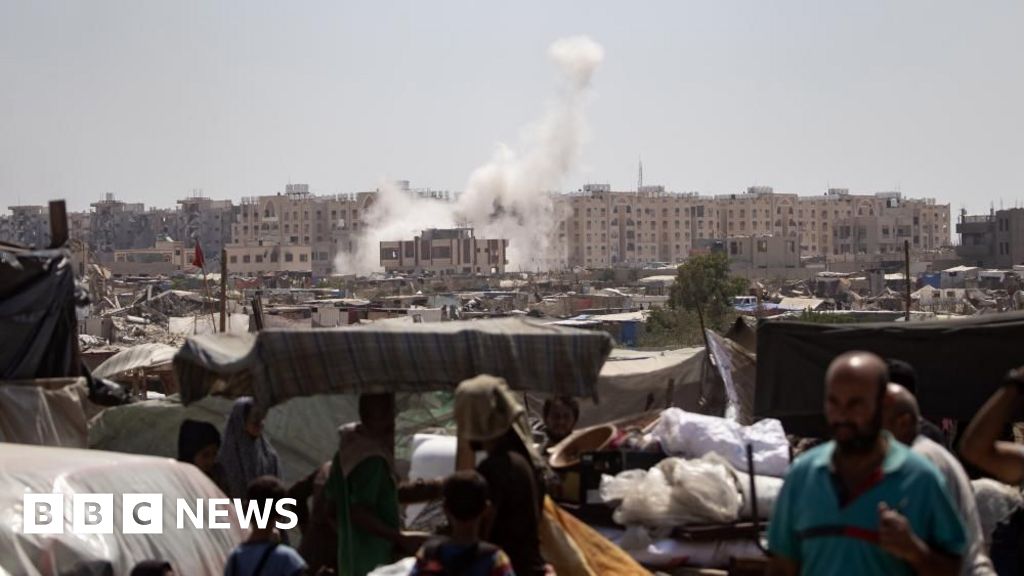US President Joe Biden said earlier this week that “we are closer than we’ve ever been” to a deal.
But earlier optimism expressed in months of talks has proved unfounded.
Israeli Prime Minister Benjamin Netanyahu told a cabinet meeting on Sunday that complex negotiations are underway to return the hostages, but that certain principles must be adhered to for Israel’s security.
“There are things we can be flexible about, and there are things we can’t be flexible about, and we emphasize them. We know very well how to differentiate between the two,” he said.
He accused Hamas of being “stubborn” in negotiations and called for more pressure on the militant group.
A senior Hamas official told the BBC on Saturday: “What we have received from the mediators is very disappointing. There is no progress”.
The original deal outlined by President Biden based on Israel’s May 27 proposal was to operate in three phases:
-
The first, a six-week “full and complete cease-fire,” would include the withdrawal of Israeli forces from all populated areas of Gaza and the exchange of some hostages — including women, the elderly, and the sick or wounded — for Palestinian prisoners. Held in Israel.
-
The second phase included the release of all other living hostages and a “permanent cessation of hostilities”.
-
The third will see the start of a major reconstruction project for Gaza and the return of the remains of the dead hostages.
Meanwhile, Israeli airstrikes on Sunday killed at least 21 people, including six children, the Hamas-run health authority in Gaza said.
The IDF said Sunday it had destroyed rocket launchers used to attack Israel from the southern Gaza city of Khan Yunis, the site of intense fighting in recent weeks that has killed 20 Palestinians.

